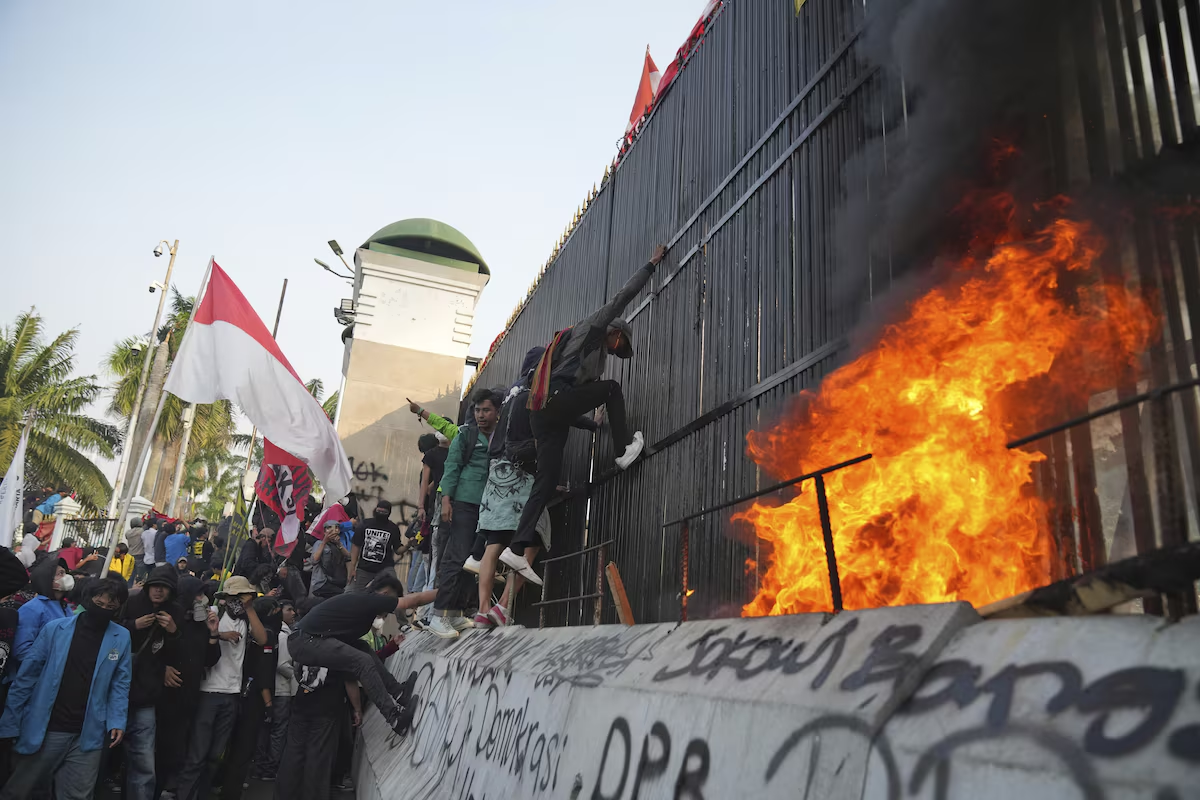In a significant political development, Indonesia has decided to scrap its controversial plan to revise the election law following widespread protests and opposition from various sectors of society. The proposed changes, which were seen as a threat to the country’s democratic process, sparked intense public debate and led to large-scale demonstrations across the nation. This decision marks a victory for civil society groups and political parties that rallied against the perceived erosion of electoral fairness and transparency.
The Controversial Election Law Proposal
The proposal to amend Indonesia’s election law was introduced by the government with the stated aim of improving the electoral process ahead of the 2024 general elections. However, the proposed changes quickly became a lightning rod for criticism, with opponents arguing that the reforms would undermine the principles of free and fair elections that have been the cornerstone of Indonesia’s democracy since the fall of Suharto’s authoritarian regime in 1998.
One of the most contentious elements of the proposed law was the move to centralize electoral administration under the control of the central government, reducing the autonomy of the regional electoral commissions. Critics argued that this would pave the way for greater government interference in the electoral process, compromising the independence and impartiality of the elections.
Another controversial aspect was the proposed shift from the current proportional representation system to a majoritarian one. This change was seen as favoring larger political parties and potentially marginalizing smaller parties and independent candidates, thereby limiting the diversity of political representation in the country’s parliament.
Public Backlash and Protests
The backlash against the proposed election law changes was swift and widespread. Civil society organizations, political parties, academics, and student groups were among those who voiced their opposition, arguing that the reforms would lead to democratic backsliding in Indonesia. The protests, which began in major cities like Jakarta, Bandung, and Surabaya, quickly spread to other parts of the country, with thousands of people taking to the streets to demand the withdrawal of the proposal.
Protesters expressed concerns that the proposed law would concentrate too much power in the hands of the central government and diminish the role of regional governments in the electoral process. They also feared that the new system would entrench the dominance of established political elites, reducing opportunities for new and diverse voices to enter the political arena.
The demonstrations were marked by a strong presence of student activists, who played a key role in organizing and leading the protests. These young activists drew parallels between the current situation and the struggles of the reformasi era, which saw the fall of Suharto and the establishment of democratic governance in Indonesia.
Political and Legal Challenges
In addition to the public protests, the proposed election law faced significant political and legal challenges. Several political parties, including those within the ruling coalition, expressed reservations about the reforms. These parties argued that the changes would disrupt the political balance and create unnecessary tensions ahead of the 2024 elections.
Legal experts also weighed in, with some suggesting that the proposed law might violate the Indonesian Constitution, which guarantees free and fair elections. Concerns were raised about the potential for legal challenges to the law if it were passed, which could lead to prolonged political and legal uncertainty in the country.
The Indonesian House of Representatives, which was responsible for debating and passing the proposed law, became a focal point of the controversy. Lawmakers from both the opposition and some members of the ruling coalition questioned the necessity and timing of the reforms, given that the current electoral system had successfully facilitated democratic transitions in the past.
Government’s Decision to Scrap the Plan
Facing mounting pressure from the public, political parties, and legal experts, the Indonesian government ultimately decided to withdraw the proposed election law. In a statement, the government acknowledged the concerns raised by various stakeholders and emphasized its commitment to maintaining the integrity of the electoral process.
The decision to scrap the plan was welcomed by many as a victory for democracy and the rule of law in Indonesia. Civil society groups, in particular, hailed the move as a testament to the power of public participation and the importance of safeguarding democratic institutions.
Implications for the 2024 Elections
With the proposed election law now off the table, attention is shifting to how Indonesia will proceed with preparations for the 2024 general elections. The government and the electoral commission will need to ensure that the existing legal framework is sufficient to manage the complexities of the upcoming elections, which will be one of the largest democratic exercises in the world.
The withdrawal of the proposed law has also reinforced the importance of maintaining an inclusive and participatory approach to electoral reforms. Moving forward, any changes to the electoral system will likely require broader consultation and consensus-building among all stakeholders to ensure that the reforms reflect the will of the people and enhance the democratic process.
The events surrounding the election law proposal have underscored the resilience of Indonesia’s democracy and the crucial role that civil society plays in defending democratic norms. As the country prepares for the 2024 elections, the lessons learned from this episode will likely shape the future of Indonesia’s democratic governance and the ongoing efforts to strengthen its electoral institutions.











